Filter by
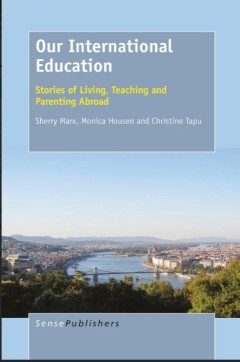
Our International Education : Stories of living, teaching and parenting abroad
What makes a person pack up and move to another country? What does she or he hope to gain from the experience? How do children fit into the picture? Our International Education presents the stories of three American women, a university professor, a high school math teacher, and a high school English as a second language teacher, who move to Hungary for a year to teach. Each woman brings her you…
- Edition
- -
- ISBN/ISSN
- 978-94-6300-286-8
- Collation
- -
- Series Title
- -
- Call Number
- 370 MAR o
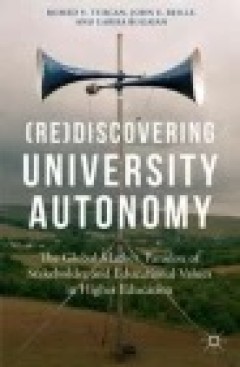
(Re)Discovering University Autonomy: The Global Market Paradox of Stakeholder…
(Re)Discovering University Autonomy has far reaching implications for leaders and managers, researchers, educators, practitioners, and policy makers by addressing modern challenges to university autonomy in Europe and beyond in a new and innovative way.
- Edition
- -
- ISBN/ISSN
- 9781137388728
- Collation
- -
- Series Title
- -
- Call Number
- 378 DIS d
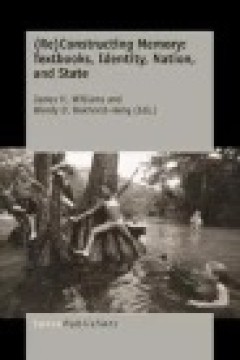
(Re)Constructing Memory: Textbooks, Identity, Nation, and State
This book engages readers in thirteen conversations presented by authors from around the world regarding the role that textbooks play in helping readers imagine membership in the nation. Authors’ voices come from a variety of contexts – some historical, some contemporary, some providing analyses over time. But they all consider the changing portrayal of diversity, belonging and exclusion in…
- Edition
- -
- ISBN/ISSN
- 9789463005098
- Collation
- -
- Series Title
- -
- Call Number
- 301 CON c

Organometallics and Related Molecules for Energy Conversion
This book presents a critical perspective of the applications of organometallic compounds (including those with metal or metalloid elements) and other related metal complexes as versatile functional materials in the transformation of light into electricity (solar energy conversion) and electricity into light (light generation in light emitting diode), in the reduction of carbon dioxide to usefu…
- Edition
- -
- ISBN/ISSN
- 978-3-662-46054-2
- Collation
- -
- Series Title
- Green Chemistry and Sustainable Technology
- Call Number
- 333.79 ORG
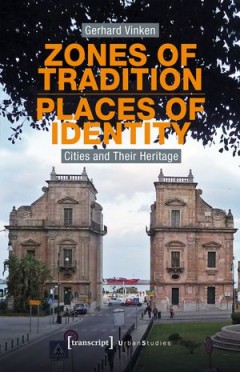
Zones of Tradition - Places of Identity: Cities and Their Heritage
What is the heritage of our cities? Which are the monuments, places, and spaces in which it accumulates, and by which practices is it formed, handed down, appropriated? Gerhard Vinken takes the readers to twelve cities on three continents and analyses the diverse and contradictory heritage formations that have had a lasting impact on urban life. The vitality of urban heritage, as these vivid an…
- Edition
- -
- ISBN/ISSN
- 9783839454466
- Collation
- -
- Series Title
- -
- Call Number
- 307.2 VIN z

What is the Avatar?: Fiction and Embodiment in Avatar-Based Singleplayer Comp…
What are the characteristic features of avatar-based singleplayer videogames, from Super Mario Bros. to Grand Theft Auto? Rune Klevjer examines this question with a particular focus on issues of fictionality and realism, and their relation to cinema and Virtual Reality. Through close-up analysis and philosophical discussion, Klevjer argues that avatar-based gaming is a distinctive and dominant …
- Edition
- -
- ISBN/ISSN
- 9783839445792
- Collation
- -
- Series Title
- -
- Call Number
- 302.23 KLE w
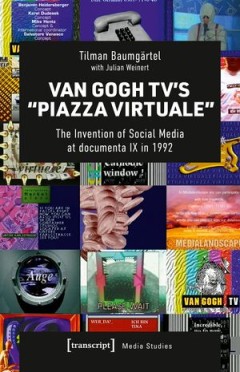
Van Gogh TV's Piazza Virtuale: The Invention of Social Media at documenta IX …
Piazza virtuale by the group of artists known as Van Gogh TV was not only the biggest art project ever to appear on television, but from a contemporary point of view the project was also a forerunner of today's social media. The ground-breaking event that took place during the 100 days of documenta IX in 1992 was an early experiment with entirely user-created content. This is the first book-len…
- Edition
- -
- ISBN/ISSN
- 9783839460665
- Collation
- -
- Series Title
- -
- Call Number
- 302.23 BAU v
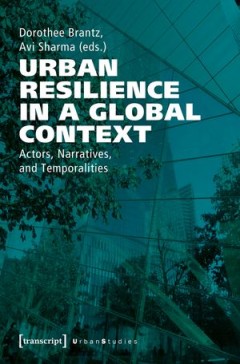
Urban Resilience in a Global Context: Actors, Narratives, and Temporalities
Urban Resilience is seen by many as a tool to mitigate harm in times of extreme social, political, financial, and environmental stress. Despite its widespread usage, however, resilience is used in different ways by policy makers, activists, academics, and practitioners. Some see it as a key to unlocking a more stable and secure urban future in times of extreme global insecurity; for others, it …
- Edition
- -
- ISBN/ISSN
- 9783839450185
- Collation
- -
- Series Title
- -
- Call Number
- 307.2 URB u
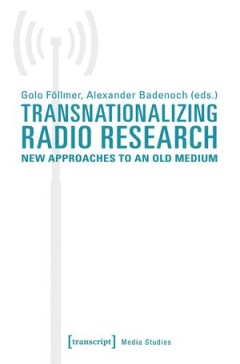
Transnationalizing Radio Research: New Approaches to an Old Medium
Transnationalizing Radio Research presents a theoretical and methodological guide for exploring radio's multiple »global ages«, from its earliest years through its recent digital transformations. It offers radio scholars theoretical tools and concrete case studies for moving beyond national research frames. It gives radio practitioners inspiration for production and archiving, and offers scho…
- Edition
- -
- ISBN/ISSN
- 9783839439135
- Collation
- -
- Series Title
- -
- Call Number
- 302.23 TRA t
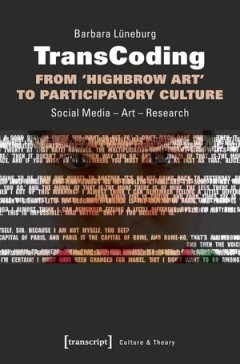
TransCoding - From `Highbrow Art' to Participatory Culture: Social Media - Ar…
Between 2014 and 2017, the artistic research project "TransCoding - From 'Highbrow Art' to Participatory Culture" encouraged creative participation in multimedia art via social media. Based on the artworks that emerged from the project, Barbara Lüneburg investigates authorship, authority, motivational factors, and aesthetics in participatory art created with the help of web 2.0 technology. The…
- Edition
- -
- ISBN/ISSN
- 9783839441084
- Collation
- -
- Series Title
- -
- Call Number
- 301 LUN t
 Computer Science, Information & General Works
Computer Science, Information & General Works  Philosophy & Psychology
Philosophy & Psychology  Religion
Religion  Social Sciences
Social Sciences  Language
Language  Pure Science
Pure Science  Applied Sciences
Applied Sciences  Art & Recreation
Art & Recreation  Literature
Literature  History & Geography
History & Geography